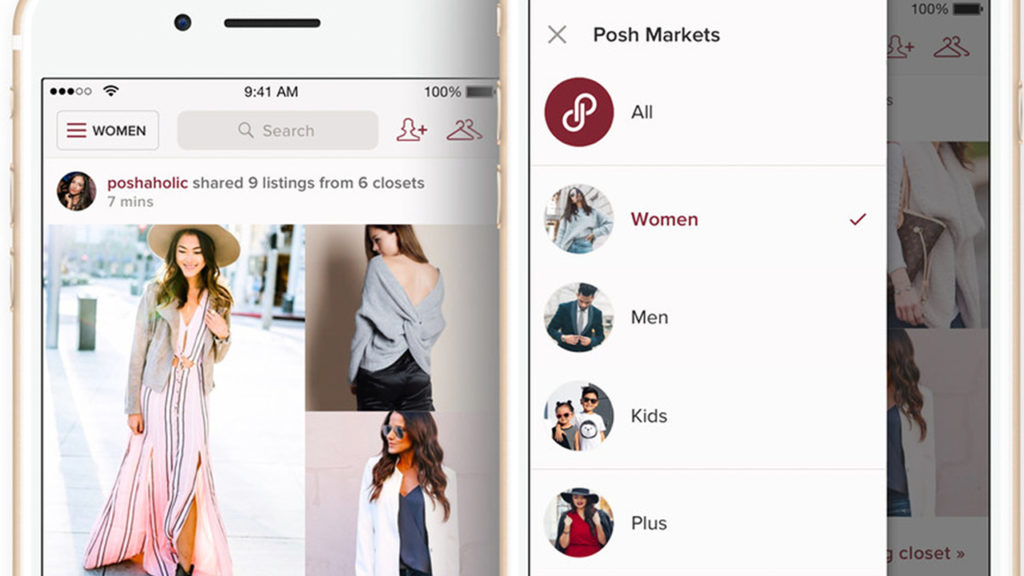Social marketplace Poshmark added features this week that aid in targeted discovery and open possibilities for limited time events.
Poshmark is a mobile app for iOS and Android that allows anyone to buy and sell designer clothing. Much like Instagram, the users—called Seller Stylists—post photos, gain followers and tag items for easy browsing. Users interact with the posts through likes, comments and shares.
“Traditionally you’d think of eBay and Amazon as our competition but when you start to look at the way we’re innovating, it’s really blending commerce with social,” Poshmark CEO Manish Chandra told AList. “It’s part Instagram, Amazon and eBay all together on the platform.”
The Poshmark community can now choose from a drop-down menu of six in-app user categories called Posh Markets. These markets include women’s, men’s, kids’, boutiques, plus-size and luxury. While menus of this type are common on ecommerce sites Posh Markets pull from seller accounts, offering its users a better chance of targeted discovery.
Chandra explained that Posh Markets could also be used to automatically curate content for a limited time around a popular event, holiday or theme.
“We would use to data science technology to reclassify and tag all of our inventory around a style,” said Chandra, using boho-chic as an example. “That immediately curates the entire marketplace for an event like Coachella. It could be permanent or temporary. That’s the power of data science and data technology on which the markets are based where we can do this level of dynamic curation with no extra effort on part of selling and no change to the core platform.”
Posh Markets could be targeted based on demographics and style, tapping into current interest and FOMO marketing.
Poshmark has grown tenfold in the last five years, Chandra said, with tens of millions of members and four million Seller Stylists. He attributes this success to the app’s social interaction—a lesson to be learned for retail brands.
“We believe the future for brands and retail is this personal connection between the seller and the shopper,” said Chandra. “[This is] the same kind of personal connection that existed ten years ago between a boutique stylist and shoppers—we’re bringing it back online but at a massive scale using the power of mobile, social and data.”
The idea of social selling hasn’t been lost on retailers, with brands like MeUndies and Glossier building organic communities on Snapchat and Instagram. Poshmark has an advantage in that it’s an ecommerce platform first, rather than trying to work brands into a social network after the fact.

